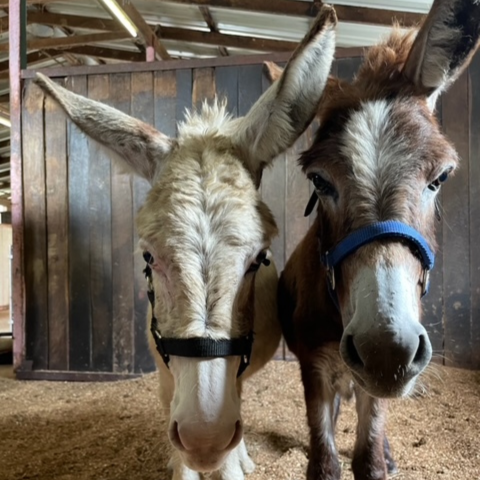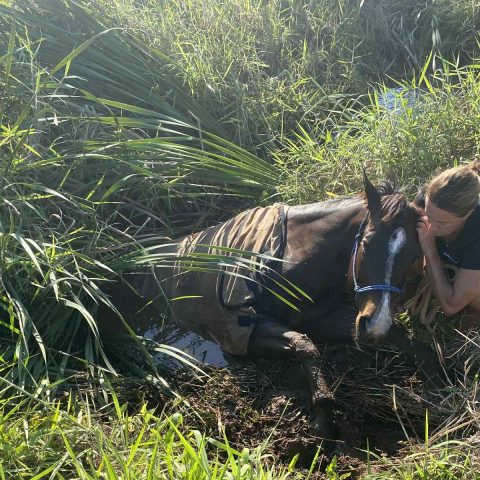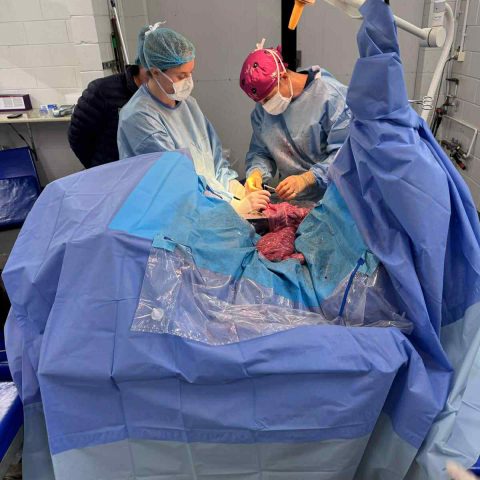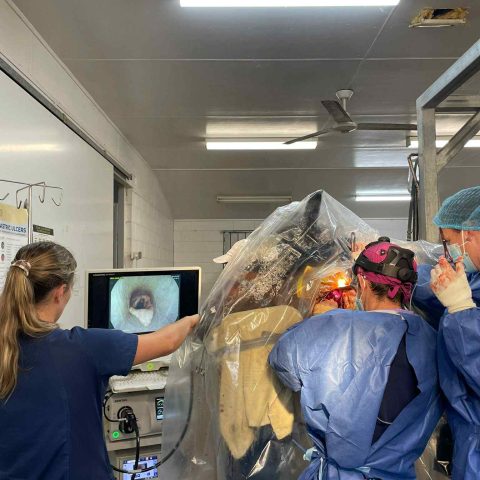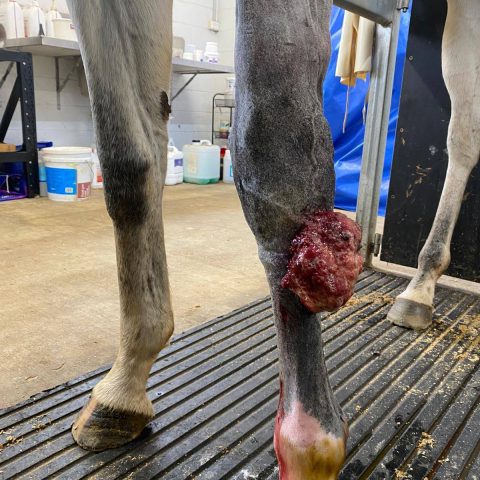Maya, a mini donkey, was referred to Sunshine Coast Equine Veterinary Clinic due to recurring lameness in her left forelimb. Her farrier raised concerns about possible laminitis.
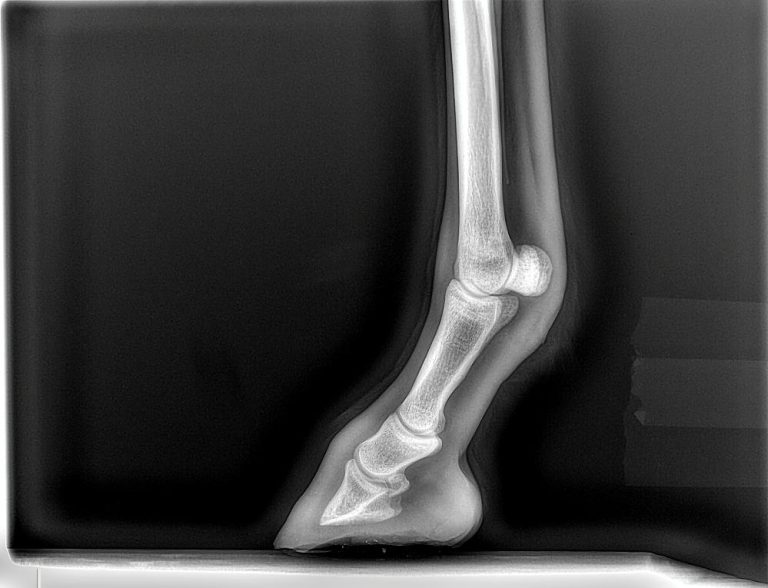 Upon examination, Maya was reactive to hoof testers. However, radiographs revealed no significant findings, including no evidence of rotation. Further investigation uncovered moderate mud and debris trapped high up in the white line at the quarters. This debris was pressing on the sensitive laminae, causing pain and resulting in lameness.
Upon examination, Maya was reactive to hoof testers. However, radiographs revealed no significant findings, including no evidence of rotation. Further investigation uncovered moderate mud and debris trapped high up in the white line at the quarters. This debris was pressing on the sensitive laminae, causing pain and resulting in lameness.
Treatment included poulticing the affected hoof for 48 hours to draw out any remaining debris. Once the area is dried and hardened, it will be kept bandaged until it becomes non-reactive to pressure.
This condition is unusual in donkeys, which typically have small, hard hooves and rarely experience abscesses or laminitis. The recent, extremely wet, weather likely contributed to the softening of Maya’s hooves and a slight separation of the hoof wall along the white line, creating an entry point for mud and debris.
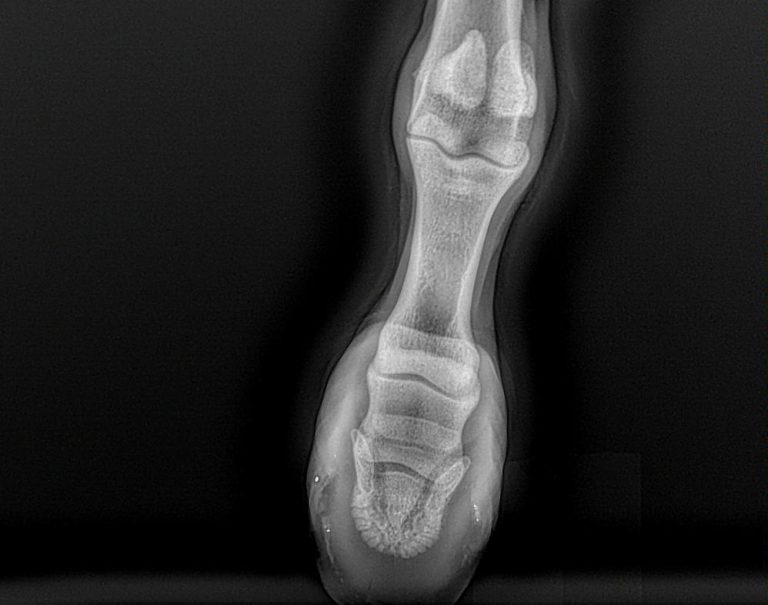
Donkeys are naturally adapted to dry, arid environments and are known for their resilience. They rank second only to camels in their ability to survive in arid conditions and withstand significant dehydration without ill effects.
Maya is pictured on the left, alongside her loyal traveling buddy.
